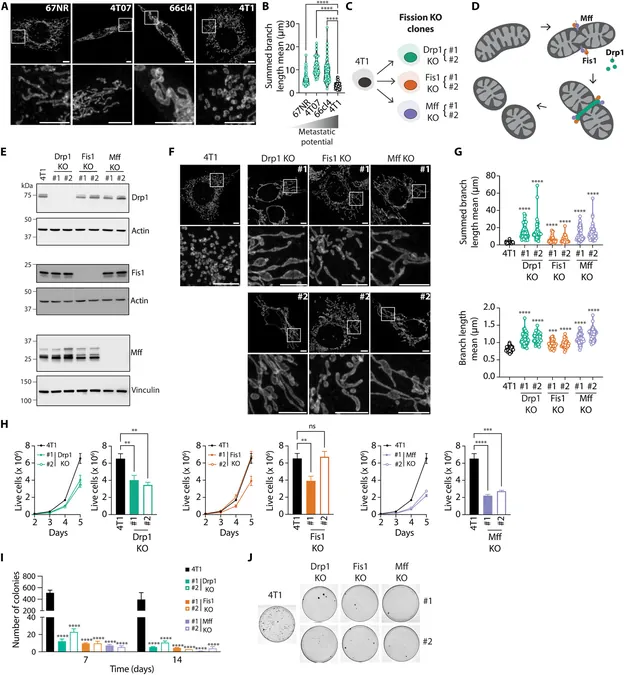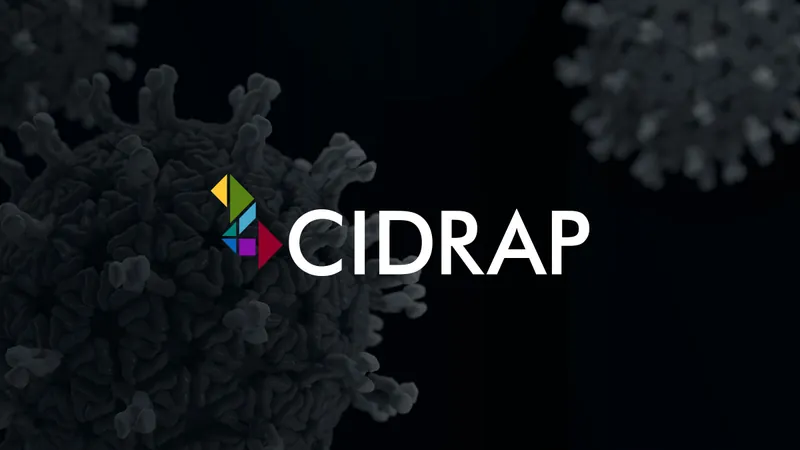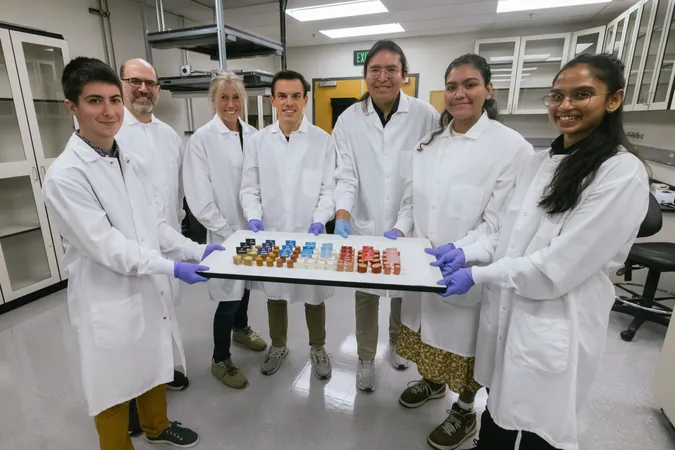
Groundbreaking Research on Mitochondrial Dynamics Offers New Hope in the Battle Against Metastatic Breast Cancer
2024-11-07
Author: Olivia
Introduction
Mitochondria, often dubbed the powerhouses of the cell, are not just energy producers; they also play crucial roles as internal sensors and communicators. While their importance in cell function is well-known, the intricate relationship between mitochondrial dynamics and metastatic breast cancer—a condition that significantly affects women worldwide—has remained a mystery until now.
Research Findings
Recent collaborative research, spearheaded by Dr. Julie St-Pierre's team at the Faculty of Medicine, has unveiled fascinating insights into how the behavior of these organelles impacts the spread of cancer. According to the findings published in the journal Science Advances, enhancing the process of mitochondrial elongation within cancer cells can significantly restrict their ability to metastasize, the leading cause of cancer-related mortality.
Expert Insights
"Our research indicates that fostering a fused mitochondrial network in breast cancer cells could be a strategic way to diminish their metastatic potential," explains Dr. St-Pierre, who also serves as uOttawa's Interim Vice-President for Research and Innovation. This discovery opens up promising avenues for both researchers and clinicians who focus on mitochondrial dynamics and various cancers.
Methodology and Observations
Dr. Lucía Minarrieta, the study's first author and a dedicated postdoctoral fellow at the Ottawa Institute of Systems Biology, highlights that the team employed multiple techniques to promote the elongation of mitochondria in breast cancer cells. Their meticulous analysis revealed that cells with a lower likelihood of metastasis exhibited longer mitochondria, implying that fragmented mitochondrial networks may correlate with more aggressive cancer forms.
Key Correlation
By observing a unified elongation signature, researchers discovered that a greater mitochondrial elongation score linked to favorable treatment outcomes—even among patients with more aggressive breast cancer subtypes. "Advancing mitochondrial elongation could potentially be integrated into initial treatment strategies to stave off metastatic recurrence in the future," Dr. St-Pierre adds, noting that metastasis frequently occurs after patients have successfully completed initial cancer treatments.
Potential for Drug Repurposing
In an intriguing twist, the research team identified leflunomide, an antirheumatic drug known commercially as Arava, as a possible candidate for inducing mitochondrial elongation. Approved by the FDA and Health Canada, this drug could be repurposed to help combat the spread of breast cancer, a pivotal finding that could drive further translational research.
Future Research Directions
"We aim to delve deeper into the practical implications of these findings. Clinical trials are essential to evaluate leflunomide's effects on metastasis in cancer patients," Dr. St-Pierre concludes. Her lab's specialization in uncovering new strategies to counteract metastatic and treatment-resistant breast cancer positions them at the forefront of this critical research area.
Collaboration and Impact
The collaborative study also highlights contributions from Dr. Peter Siegel of McGill University and Dr. Mireille Khacho from uOttawa, emphasizing the multidisciplinary effort to address one of the most pressing challenges in cancer treatment today. As the battle against breast cancer continues, these findings could change the future landscape of treatment and significantly improve patient outcomes.
Conclusion
Stay tuned for more groundbreaking developments in cancer research that could pave the way for innovative therapies!









 Brasil (PT)
Brasil (PT)
 Canada (EN)
Canada (EN)
 Chile (ES)
Chile (ES)
 España (ES)
España (ES)
 France (FR)
France (FR)
 Hong Kong (EN)
Hong Kong (EN)
 Italia (IT)
Italia (IT)
 日本 (JA)
日本 (JA)
 Magyarország (HU)
Magyarország (HU)
 Norge (NO)
Norge (NO)
 Polska (PL)
Polska (PL)
 Schweiz (DE)
Schweiz (DE)
 Singapore (EN)
Singapore (EN)
 Sverige (SV)
Sverige (SV)
 Suomi (FI)
Suomi (FI)
 Türkiye (TR)
Türkiye (TR)